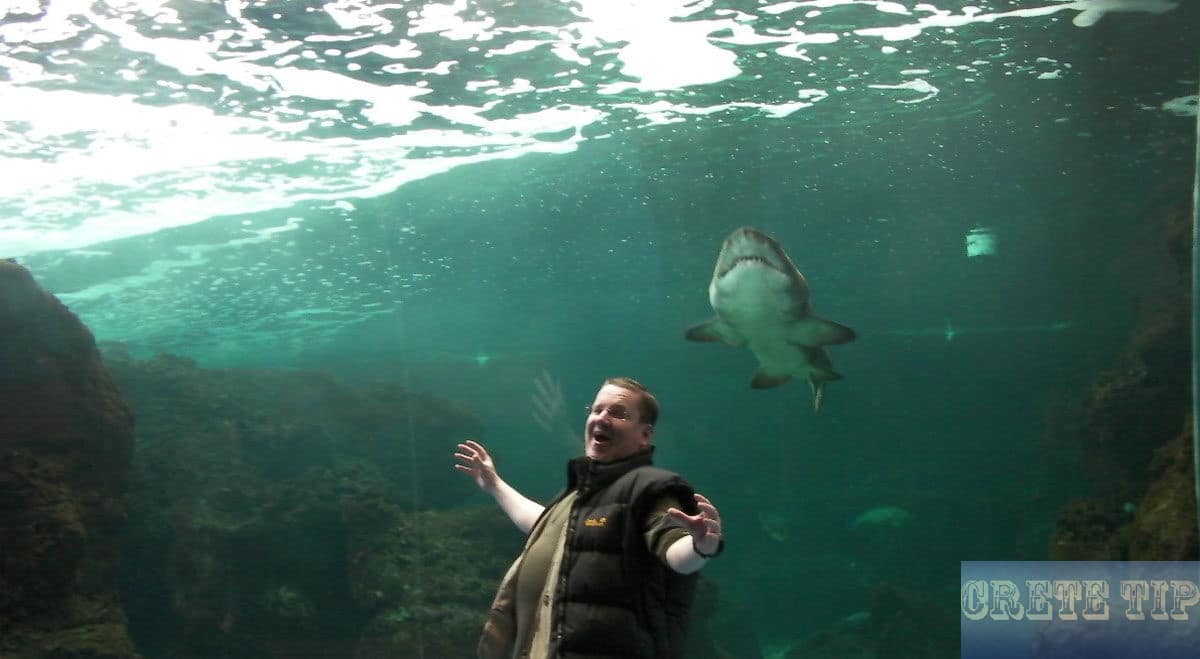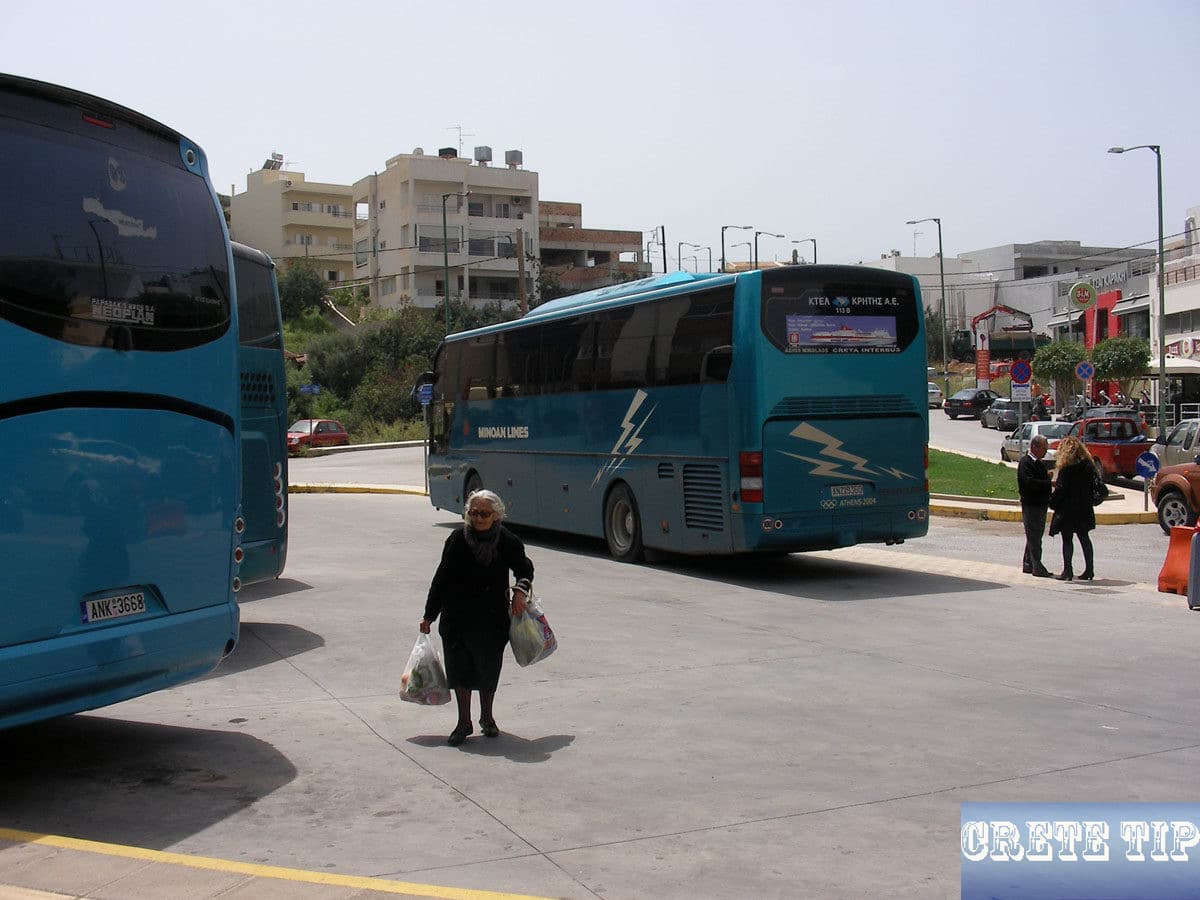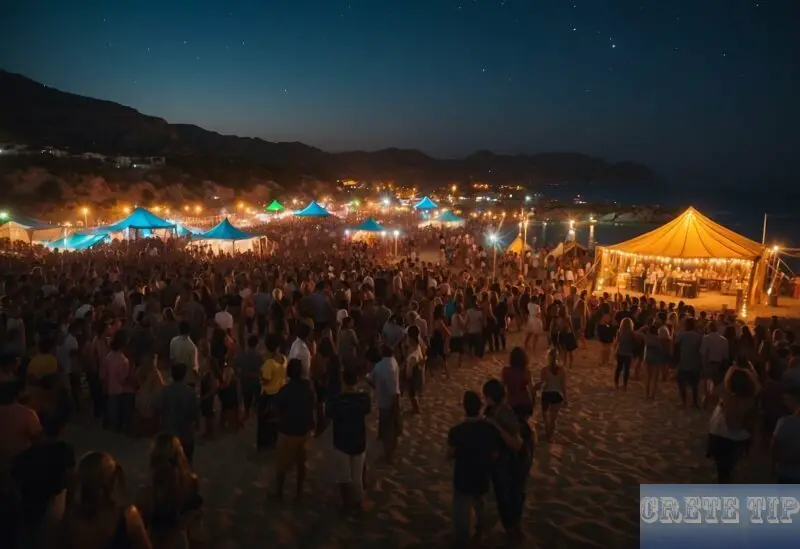A visit to the famous monasteries and churches of Chania at Easter time is highly recommended.
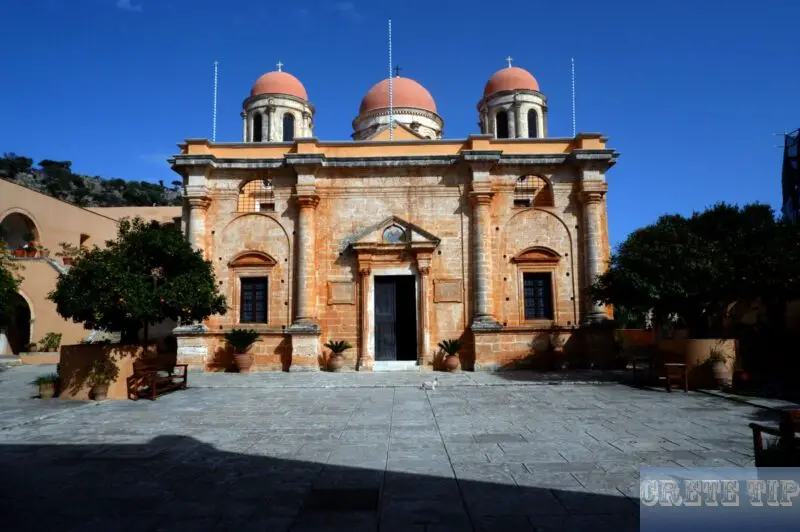
Monastery of the Holy Trinity at Tzagarolon
The Monastery of the Holy Trinity at Tzagarolon has its origins during the Venetian period. This significant Patriarchal and Stavropegic monastery was founded by the monk Hieromonk Ieremias Tzagarolos, who played a crucial role in its reconstruction.
The monastery experienced a prosperous era until the Ottoman conquest of the island. Unfortunately, it was entirely destroyed during the Greek Revolution of 1821, along with many precious artefacts. During World War II, the monastery served as an ammunition depot for the Germans. Today, it is fully accessible to the public for visits.
Gouverneto Monastery
Founded between 1537 and 1548, Gouverneto Monastery is located near the Monastery of the Holy Trinity at Tzagarolon. Despite facing numerous extensive damages throughout its history, it has continued to be inhabited and operational.
Although its fort-like structure has survived only in fragments, the monastery displays a strong Mannerist influence, featuring rare and original sculptural forms not found in similar monuments. Close by is the Monastery of Katholiko, which is associated with Saint John the Hermit.
Rotunda of Saint Michael Archangel in Kolymbari
Recognised as the most unique Early Christian church and baptismal site from the 6th century, the Rotunda of Saint Michael Archangel in Episkopi stands out as one of the remarkable monuments in Western Crete. Its uncommon architectural style has earned it the nickname “Rotunda.”
The structure is divided into compartments that connect, showcasing a distinctive design that highlights its historical significance.
Monastery of Saint John or Monastery of Katholiko
The Monastery of Saint John, also known as the Monastery of Katholiko, boasts an interesting history tied to the area’s Christian heritage. This monastery, which combines both beauty and age, is renowned for its tranquil environment, making it an ideal retreat for those seeking peace and quiet.
The architecture features elements from different historical periods, reflecting the transformations the site has undergone through the years.
Monastery of Gonia (Kolymbari)
The Monastery of Gonia is situated near Kolymbari and is notable for its rich historical background. This monastery has played a significant role in the religious life of the region and is well known for its beautiful murals and serene surroundings.
It has become a popular site for visitors interested in both its spiritual essence and artistic treasures.
Monastery of Chrysoskaliotissa
The Monastery of Chrysoskaliotissa, perched on a cliff, offers magnificent views of the surroundings. With a history that spans centuries, this monastery is dedicated to the Virgin Mary and is celebrated for its stunning architecture and the serenity of its location.
Visitors often come to admire not only the monastery’s design but also the natural beauty that envelops it.
Monastery of Chrysopigi
Situated in a scenic area, the Monastery of Chrysopigi holds both historical and spiritual significance. It is revered for its beautiful frescoes and intricate religious icons, which display the artistic influences prevalent at the time of its construction.
The monastery serves as a peaceful retreat for worshippers and visitors alike, inviting reflection and admiration.
Monastery of Saint Kyriaki
The Monastery of Saint Kyriaki offers a glimpse into the historical fabric of the region. This monastery is known for its unique architecture, set against a backdrop of natural beauty.
It is an important site for those wishing to explore the religious history of the area and the impact of Christian communities in Crete over time.
Monastery of the Transfiguration of the Saviour
The Monastery of the Transfiguration of the Saviour is a place of tranquillity and spiritual importance. Known for its outstanding visual art and historical architecture, the monastery invites both locals and tourists to learn about its significance to the local culture and religion.
The site provides a serene atmosphere for contemplation and connection.
Monastery of Saint George in Karydi
This monastery, dedicated to Saint George, presents another facet of the rich monastic tradition in the region. Nestled in a picturesque setting, it reflects the architectural styles that characterise many of the area’s religious structures.
Visitors to this monastery will appreciate not only its beauty but also its deeper roots in local faith and history.
Chania Metropolis (Trimartiri)
The Chania Metropolis, known as Trimartiri, stands as a central point for religious activities in the region. This site serves as the bishopric of Chania and is esteemed for its impressive architecture and historical importance.
As a hub of the Orthodox faith, it plays a vital role in the community’s cultural and spiritual life.
Church of Saints Anargyroi
The Church of Saints Anargyroi is known for its charming design and rich history. Located in a prominent area, this church draws both worshippers and curious visitors alike.
With its unique architectural features and decorative elements, it encapsulates the essence of local religious practices and community spirit.
Church of Saint Nicholas
The Church of Saint Nicholas is a notable landmark in the Chania region. This church has become known for its exquisite design and historical significance.
Its beautiful interior and the vibrant community surrounding it make it a popular spot for both locals and visitors. The church reflects the deep religious devotion that persists in the area, drawing people in for worship and exploration.
Holy Trinity (Agia Triada) Tzagaroli Monastery
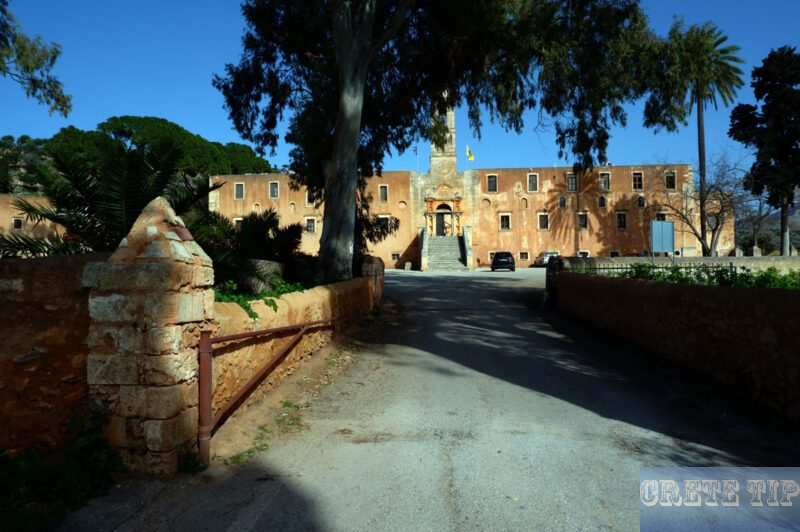
The Holy Trinity Monastery, also known as Agia Triada Tzagaroli, is a significant religious site located in the Akrotiri peninsula near Chania, Crete.
The monastery was built in 1634 on the site of a previously existing smaller church. It was founded by two Venetian-Cretan brothers, Ieremias and Lavrentios Zangaroli, who came from a noble family. Since 1892, the monastery has operated a seminary and helps maintain local schools.
The monastery features impressive 17th-century architecture. Visitors can see 17th century altars inside the church and explore various areas including the roof of the church.
The monastery is open to visitors with the following hours:
– Summer: Daily from 8:00 AM until sunset
– Winter: Daily from 8:00-14:00 and 16:00 until sunset
The entrance fee is €2.50 (sometimes with free entrance options available).
Visitors should note that proper attire is required when visiting this religious site, with appropriate clothing that covers shoulders and knees.










